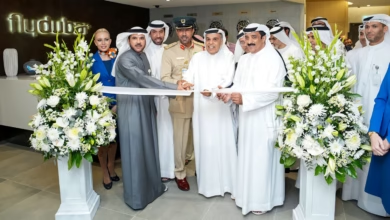
Smart Mobility in Dubai: Insights into the Smart City Project
Dubai’s smart city project is revolutionizing urban living, with a focus on smart mobility solutions that are shaping the future of transportation. This ambitious initiative is transforming Dubai into a cutting-edge metropolis, leveraging artificial intelligence, connectivity, and digital transformation to enhance the quality of life for its residents. The project has an impact on various aspects of city life, from reducing carbon emissions to improving traffic flow and offering innovative mobility options.
The smart mobility landscape in Dubai encompasses a wide range of technologies and services. Electric vehicles and charging stations are becoming increasingly common, while micromobility solutions like e-scooters and e-mopeds provide flexible transportation options. Self-driving cars and driverless taxis are being tested on the city’s roads, and urban air mobility concepts, including flying taxis and vertiports, are being explored. These advancements are part of Dubai’s vision to create a sustainable, efficient, and interconnected transportation network that will serve as a model for other smart cities around the world.
Dubai’s Vision for Smart Mobility
Dubai’s smart city project has a clear vision for the future of mobility. The Dubai Autonomous Transportation Strategy aims to make 25% of all transportation in the city autonomous by 2030. This ambitious goal has an impact on various aspects of urban life, from reducing carbon emissions to improving traffic flow. The strategy is expected to generate annual economic revenue of AED 22 billion and cut transportation costs by 44%, resulting in savings of up to AED 900 million per year. It also aims to reduce environmental pollution by 12%, saving an additional AED 1.5 billion annually. The implementation of this strategy will transform Dubai’s transportation landscape, enhancing efficiency, sustainability, and the overall quality of life for residents and visitors alike.
Key Technologies Driving Smart Mobility
Artificial intelligence (AI) and big data analytics are at the forefront of Dubai’s smart mobility revolution. AI enhances transportation efficiency, optimizing timetables and routes based on real-time data. Big data provides valuable insights from massive volumes of information collected through various sources, supporting urban decision-makers and improving services for citizens.
The Internet of Things (IoT) plays a crucial role in connecting devices and sensors across the city. IoT technology enables real-time traffic management, smart parking solutions, and advanced metering systems. These innovations optimize energy usage and reduce environmental impact.
The integration of 5G networks facilitates faster data transmission, enabling seamless communication between smart city components. This connectivity supports the deployment of self-driving vehicles and enhances the overall efficiency of public transportation systems.
Flagship Smart Mobility Projects
Dubai’s smart city project showcases several groundbreaking initiatives in smart mobility. The introduction of air taxis by 2026 stands out as a revolutionary step. This project, led by the Dubai Roads and Transport Authority in partnership with JOBY Aviation and Skyports Infrastructure, aims to establish the world’s first commercial, city-wide electric air taxi service. The initial network will include four vertiports located at Dubai International Airport, Palm Jumeirah, Dubai Downtown, and Dubai Marina. These air taxis, designed as robust eVTOL models, will carry up to four passengers and a pilot, significantly reducing travel times across the emirate.
Impact on Urban Life and Sustainability
Dubai’s smart city project has a significant impact on urban life and sustainability. The implementation of smart mobility solutions has the potential to reduce environmental pollution by 12%, according to a 2023 HSBC report. This reduction is achieved through the optimization of traffic flow, the promotion of public transportation, and the adoption of electric vehicles (EVs). The UAE government has set a target for 10% of all vehicles on the road to be electric by 2030, offering incentives such as free registration and reduced charging fees. These initiatives align with Dubai’s Green Mobility Strategy 2030, which mandates 30% of public sector vehicles and 10% of all vehicle sales to be electric and hybrid by 2030.
Conclusion
Dubai’s smart city project is causing a revolution in urban living, with a focus on smart mobility solutions that are shaping the future of transportation. The project has an impact on various aspects of city life, from cutting carbon emissions to improving traffic flow and offering innovative mobility options. These advancements are part of Dubai’s vision to create a sustainable, efficient, and interconnected transportation network that will serve as a model for other smart cities around the world. The integration of AI, IoT, and 5G technologies is key to realizing this vision, enabling real-time traffic management and supporting the deployment of self-driving vehicles.
Looking ahead, Dubai’s commitment to smart mobility is set to transform the urban landscape significantly. The introduction of air taxis by 2026 and the goal of making 25% of all transportation autonomous by 2030 are just a few examples of the city’s forward-thinking approach. These initiatives not only aim to enhance the quality of life for residents and visitors but also to boost economic growth and environmental sustainability. As Dubai continues to push the boundaries of what’s possible in urban transportation, it’s paving the way for a smarter, more connected future that other cities might follow.
FAQs
What does Dubai’s smart mobility strategy involve?
Dubai is advancing its transportation system with a focus on automated vehicles and smart mobility solutions. The city aims to convert 25% of its total transportation into autonomous modes by the year 2030.
Can you explain smart mobility within the context of a smart city?
Smart mobility involves utilizing various transportation options that may replace or supplement the use of traditional gas-powered vehicles. This includes a range of options like ride-sharing, car-sharing, public transport, bicycling, and walking.
What are the key elements of Dubai’s Smart City initiative?
The Dubai Plan 2021 focuses on transforming Dubai into a smart and sustainable urban area. It includes enhancing around 1000 government services across six major sectors: transportation, infrastructure, communications, economic services, urban planning, and electricity.
What are the main obstacles to implementing smart city projects?
According to a report by SmartCitiesWorld, securing adequate funding is one of the principal challenges in smart city development. It is crucial for governments to develop effective strategies that establish sustainable revenue models for these initiatives.






[…] technologies like 5G wireless, smart city solutions, and IoT infrastructure make Dubai an ideal foundation for international companies that want to […]